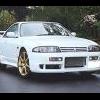HKS Turbo's vs Garrett Turbo's...
Announcements
-
Similar Content
-
Latest Posts
-
Very clean car, are you keeping it stock or planning any mods?
-
Hey everyone, just wanted to let you know about an app I use to track the modifications, repairs, servicing etc I do to my R33 GTR. You might like to use it as well. I'm biased because my son just wrote and released it! But I think you might find it useful to... https://trackmymods.com
-
Hey everyone, been on here for a while, but never introduced myself before. 1st import was a R32 GTS Type M, then R33 GTS, now R33 GTR - each one sold to help pay for the next one. Over the years my son has seen me modify and do changes to my imports and was one of the reasons for him to build an app for car enthusiasts like us. (He can only afford a 2007 Honda at the moment, but he'll get there!) Anyway, bit of a proud Dad moment as he's released an app that I use and you all might like to as well. https://trackmymods.com
-
By Dose Pipe Sutututu · Posted
It will sound tragic and you wished you didn't have 1x exhaust per turbo. There's a reason why most S55 owners change to a single mid pipe. -
Echo the comments about the well preserved condition it's in. It has the aero bumper too for extra points. Nice car, and please keep it like that! 🙂
-







Recommended Posts
Create an account or sign in to comment
You need to be a member in order to leave a comment
Create an account
Sign up for a new account in our community. It's easy!
Register a new accountSign in
Already have an account? Sign in here.
Sign In Now